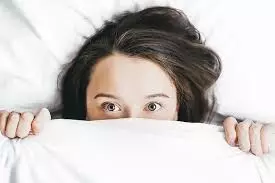
Get a good night's sleep for better memory, says study
text_fieldsA recent study have found that sleep and brain memories are interconnected and activation patterns produced during sleep play an important role in keeping our memories strong.
The Researchers at the University of Birmingham and Ludwig-Maximilians-University Munich today have published their findings in Nature Communications.
The study reveals that during the sleep, the brain produces particular activation patterns and when two of these patterns gear into each other, previous experiences get reactivated. The stronger the reactivation, the clearer will be our recall of past events.
They have discovered that the precise combination of SOs and sleep spindles is vital for opening windows during which memories are reactivated; helping to form and cement memories in the human brain.
"Our main means of strengthening memories while we sleep is the reactivation of previously learnt information, which allows us to solidify memories in neocortical long-term stores."Said Dr Bernhard Staresina, from the University of Birmingham's School of Psychology.
"We have discovered an intricate interplay of brain activity - slow oscillations and sleep spindles - which create windows of opportunity enabling this reactivation," added Dr Staresina.
The team of experts from UK and Germany devised novel tests where participants were shown information before taking a nap and closely monitored brain activity during non-rapid eye movement (NREM) sleep using EEG recording. The participants were then tested on their memory recall after waking up, allowing the researchers to link the extent of memory reactivation during sleep to memory performance.
The results revealed reactivation of learning material during SO-spindle complexes, with the precision of SO-spindle coupling predicting how strongly the memory would be reactivated by the brain. This in turn predicted the level of memory consolidation across participants and the subsequent clarity of recall.
"These results shed new light on the memory function of sleep in humans and emphasise the importance of orchestrated sleep rhythms in strengthening our powers of recall and orchestrating the creation of memories." commented Dr Thomas Schreiner, from Ludwig-Maximilians-University, Munich.
























